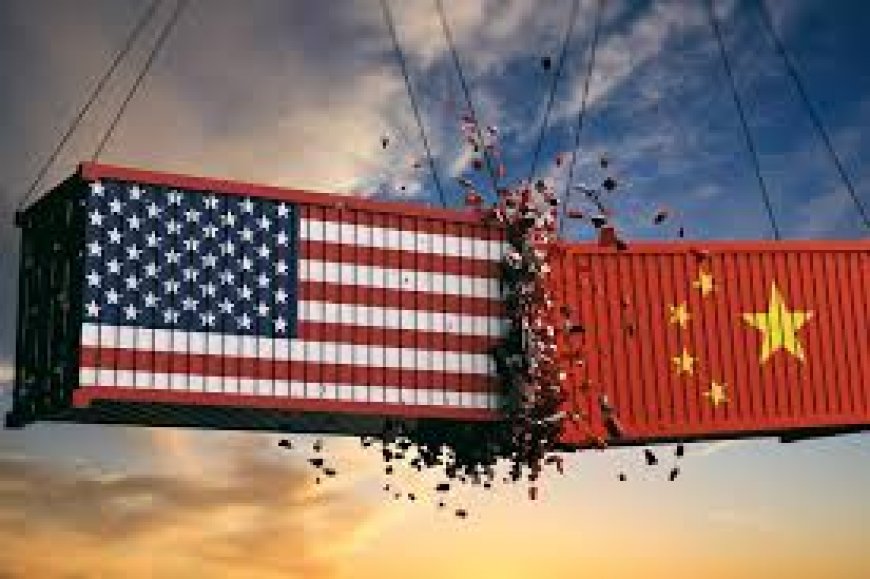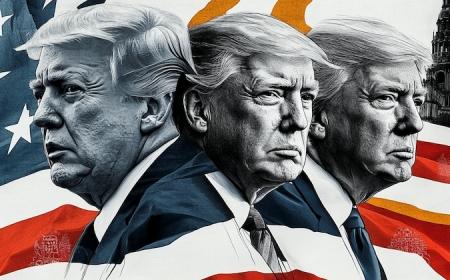Trump’s Trade War Redux: Is the U.S. Preparing to Reopen Trade Talks with China?
The economic intertwinement of the United States and China—the world’s two largest economies—has historically functioned as a stabilizing force in their broader relationship. Yet the resurgence of protectionist trade policies under Trump threatens to destabilize this delicate equilibrium. While political rhetoric intensifies, international experts now suggest that economic realities may soon supersede ideological posturing, compelling Washington and Beijing to resume high-level negotiations. Trade dialogue, once dismissed as naïve, now appears more pragmatic than ever in an era where mutual disruption benefits neither side.

Trump’s Trade War Redux: Is the U.S. Preparing to Reopen Trade Talks with China?
The potential return of Donald Trump to the presidency of the United States has revived the specter of a trade war—an aggressive policy relic from his first administration. Trump’s worldview, deeply skeptical of globalization, is rooted in a belief that the U.S. has been too permissive in allowing foreign goods and investments to flood its domestic markets. Under this philosophy, the U.S. moved to reconfigure its trade tariffs, affecting nearly 170 countries. Such sweeping measures inevitably carry profound economic and political consequences—particularly with America’s primary economic counterpart: the People’s Republic of China.
The Interdependence Paradox: How U.S.-China Economic Ties Defy Political Posturing
The economic intertwinement of the United States and China—the world’s two largest economies—has historically functioned as a stabilizing force in their broader relationship. Yet the resurgence of protectionist trade policies under Trump threatens to destabilize this delicate equilibrium. While political rhetoric intensifies, international experts now suggest that economic realities may soon supersede ideological posturing, compelling Washington and Beijing to resume high-level negotiations. Trade dialogue, once dismissed as naïve, now appears more pragmatic than ever in an era where mutual disruption benefits neither side.
Technology at the Crossroads: Cooperation or Collision?
China and the U.S. remain fierce rivals in emerging technologies, from AI and quantum computing to biotechnology and semiconductors. Yet paradoxically, many of these rivalries have been nourished by bilateral collaboration. The trade war and a flurry of recent sanctions—including U.S. restrictions on semiconductor exports and China’s reciprocal ban on critical rare-earth metals—have disrupted research and innovation ecosystems in both nations. The logic of technological progress mandates a détente: without strategic coordination, both nations risk jeopardizing years of foundational scientific advancement. For global innovation to thrive, the two must pivot from confrontation to calibrated coexistence.
Global Institutions Raise Alarm Over Escalating Trade Tensions
Multilateral economic bodies have grown increasingly vocal about the ripple effects of prolonged U.S.-China friction. Just as the global economy begins to recover from the devastating aftermath of the COVID-19 pandemic, trade hostilities risk ushering in a new wave of recession. Tariff escalation has already crossed the unprecedented threshold of 100%—a historic anomaly that threatens to cripple global supply chains. Given China’s central role in international trade and its deep integration into manufacturing and export sectors, economic rationality suggests that Beijing remains open to negotiated solutions. The question is whether Washington is willing to abandon its maximalist approach.
Geopolitics and the Battle Within: U.S. Domestic Politics as a Barrier to Peace
Beyond economic calculus, the political theater within the U.S. plays a critical role in shaping Washington’s China policy. While Republicans under Trump advocate for aggressive trade containment, the Democratic establishment prefers a subtler strategy: combining media influence with indirect pressure while seeking closer geopolitical alignment with European allies. Yet even Democratic operatives view deteriorating U.S.-China relations as a strategic talking point for upcoming elections. There is a calculated desire among some in Washington to perpetuate tensions for domestic political gain—regardless of the collateral damage to global stability.
Conclusion: The Burden of De-escalation Lies with Washington
The global economic system stands at a precipice. Stability, growth, and innovation all hinge on the ability of the world’s two largest economies to engage in constructive, good-faith dialogue. While both parties bear responsibility, the origins of this trade conflict lie in unilateral decisions taken by the United States. A durable resolution will require Washington to reconsider the efficacy of coercive tariffs and return to the negotiation table without preconditions. In the calculus of long-term prosperity, diplomacy is not a concession—it is a strategic necessity. The world waits for the U.S. to act accordingly.
By: A. Yeganeh












































